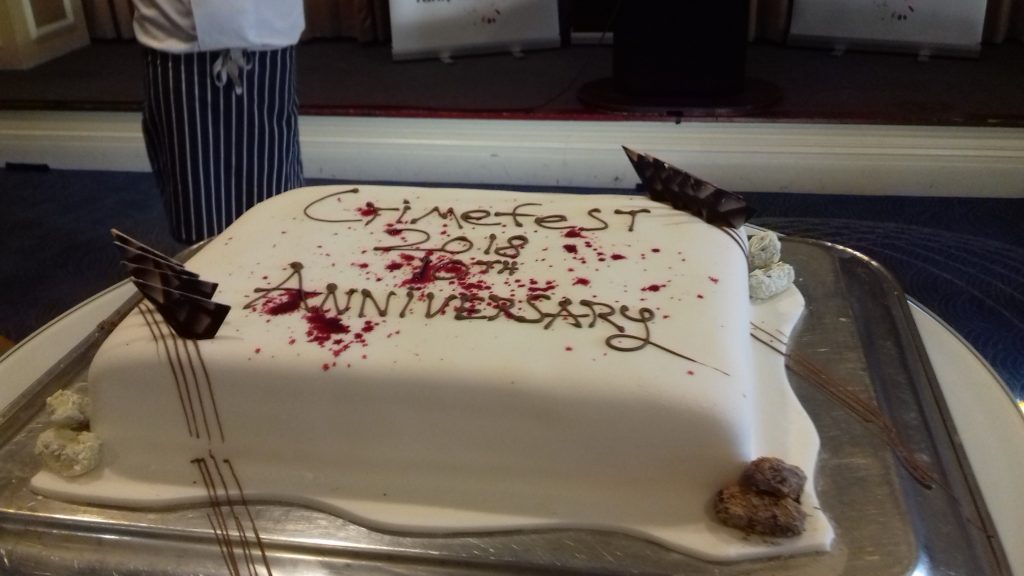
Here are some of my highlights of the tenth anniversary weekend (for highlights from 2017 click here):
On putting real people in your stories: John Simenon confessed that when his father (Georges: author of Inspector Maigret books) introduced a young man into his stories, ‘16-years old with pimples and studying Greek’, it was ‘the last straw’ and he didn’t read his father’s books for the next 15 years. Peter Guttridge (Those Who Feel Nothing) had a friend who didn’t speak to him for 10 years, not because of his references to her partiality for alcohol and other vices, but because of his ‘comments about her dress sense’.
Alison Joseph (Murder Will Out, featuring a fictional version of Agatha Christie), explained that she could always ‘play with Agatha a little, because she knew what happened to her in later life’. And Abir Mukherjee (Smoke and Ashes) told us ‘when I discovered there was a real man called Surendranath Banerjee, knighted by the British, and referred to as ‘Surrender-Not’ Banerjee, it was really too good an opportunity to miss’.
On animals: Camilla Way’s character (The Lies we Told) kills ‘at least two people and a budgie’. Unsurprisingly, readers complained bitterly about the death of the bird. Roz Watkins (The Devil’s Dice) reassured us that the labrador in her debut novel was not harmed whilst sniffing out and consuming poisoned cake.
On historical crime: Ruth Downie (Memento Mori) explained she chose to write historical fiction, in part, because it was easier to get away with crimes in the past. Antonia Hodgson (Death at Fountains Abbey) reminded us there was no police force to investigate threats against John Aislabie, former Chancellor of the Exchequer in early 18th century England. (He became a hated man as a result of the events of the South Sea bubble financial disaster). Lloyd Otis (Dead Lands) has the tinder-box setting of the 1977 Battle of Lewisham (National Front march through South East London) as the background for his debut thriller, although he admitted also being attracted to this era of ‘disco and flares’.
On disability: Will Dean (Dead Pine’s) investigator, aptly named ‘Tuva Moodyson’ is deaf. ‘I wanted the reader to experience the story through her eyes.’ Jeffery Deaver’s Lincoln Rhyme (The Bone Collector and others) is quadriplegic.
On simmering below the surface: Alex Dahl (The Boy at the Door) wanted an event to ‘dislodge everything’ in an otherwise perfect setting. Similarly Michelle Sacks (You Were Made for This) chose a couple growing their own vegetables in rural Sweden and living an apparently idyllic life as her central characters. Louise Candlish (Our House) has written a chilling ‘property porn’ (!) novel where the marital home takes centre stage.
Part Two and Awards to follow…
